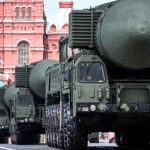![]() Ottawa told the Chinese makers of the popular and controversial app TikTok to close its operation in Canada this week following a national security review, but few details were released and the app remains accessible to use.
Ottawa told the Chinese makers of the popular and controversial app TikTok to close its operation in Canada this week following a national security review, but few details were released and the app remains accessible to use.
All foreign direct investments big or small are subject to a national security review under the Investment Canada Act. It applies to the establishment of a new Canadian business by a non-Canadian or the takeover of an existing business.
The process is conducted behind closed doors and involves security and intelligence agencies.
The decision was made based on information and evidence collected during the security review, and on advice received from the intelligence community, Champagne added.
The directive doesn’t ban the app in Canada, with Champagne saying Canadians can make the decision themselves and apply “good cyber security practices.”
The company issued a statement in response to the shut-down on Nov. 6, saying it would challenge the order in court.
Ownership
The Chinese ownership of TikTok has been a longstanding topic of concern by security agencies. The concerns centre on the ways in which user data is processed and stored, and how the company can use its algorithm to suppress or boost information.
He also alleges having seen the backdoor channel in the code allowing certain “high level persons to access user data, no matter where the data is located.”
The company denies Yu’s allegations.
Chinese law requires all organizations and citizens to support the state in the collection of intelligence.
Lieber didn’t comment on whether ByteDance has been compelled to provide data to the Chinese regime, in accordance with the intelligence law. He said, however, that Beijing has never requested user data from them, and that they “would not disclose user data to the Chinese government if we were requested to do so.”
Federal Ban
Ottawa’s shut-down order to TikTok follows another measure last year pertaining to government usage of the app.
“On a mobile device, TikTok’s data collection methods provide considerable access to the contents of the phone,” she said, adding there are concerns about the legal regime that governs the information collected.
The government has not levelled more serious accusations against TikTok. The country’s electronic spying agency has encouraged good cybersecurity practices but has refrained from singling out the Chinese app.
“If you consider one-third of the adult population receives their news from this app, one-sixth of our children are saying they’re constantly on this app, if you consider that there’s 150 million people every single day that are obviously touching this app, this provides a foreign nation a platform for information operations, a platform for surveillance, and a concern we have with regards to who controls that data,” said now-retired Gen. Paul Nakasone, testifying alongside Plumb. Nakasone was the commander of the U.S. Cyber Command and chief of the National Security Agency at the time of his statement.
Washington ordered TikTok be deleted from all government-issued phones last year around the same time as Ottawa.
National Security Reviews
More in-depth national security reviews of foreign investments, such as those that led to the recent order against TikTok Technology Canada, are not uncommon.
Out of the 32, 22 were subject to further reviews ordered by the industry minister, with 16 being related to China.
In five cases, Ottawa ultimately allowed unspecified China-linked entities to establish a new Canadian business or takeover an existing one, in the fields of computer systems design and scientific research. In other cases, China-linked entities withdrew proposed investments in mining or the film industry.
Ottawa ordered Chinese entities to divest from mining investments on three occasions in 2022-2023. This move was publicized in November 2022 and relates to the lithium sector, also known as critical minerals.
Sinomine (Hong Kong) Rare Metals Resources Co. Ltd., Chengze Lithium International Ltd., and Zangge Mining Investment (Chengdu) Co. Ltd. were told to divest on the grounds of national security.











